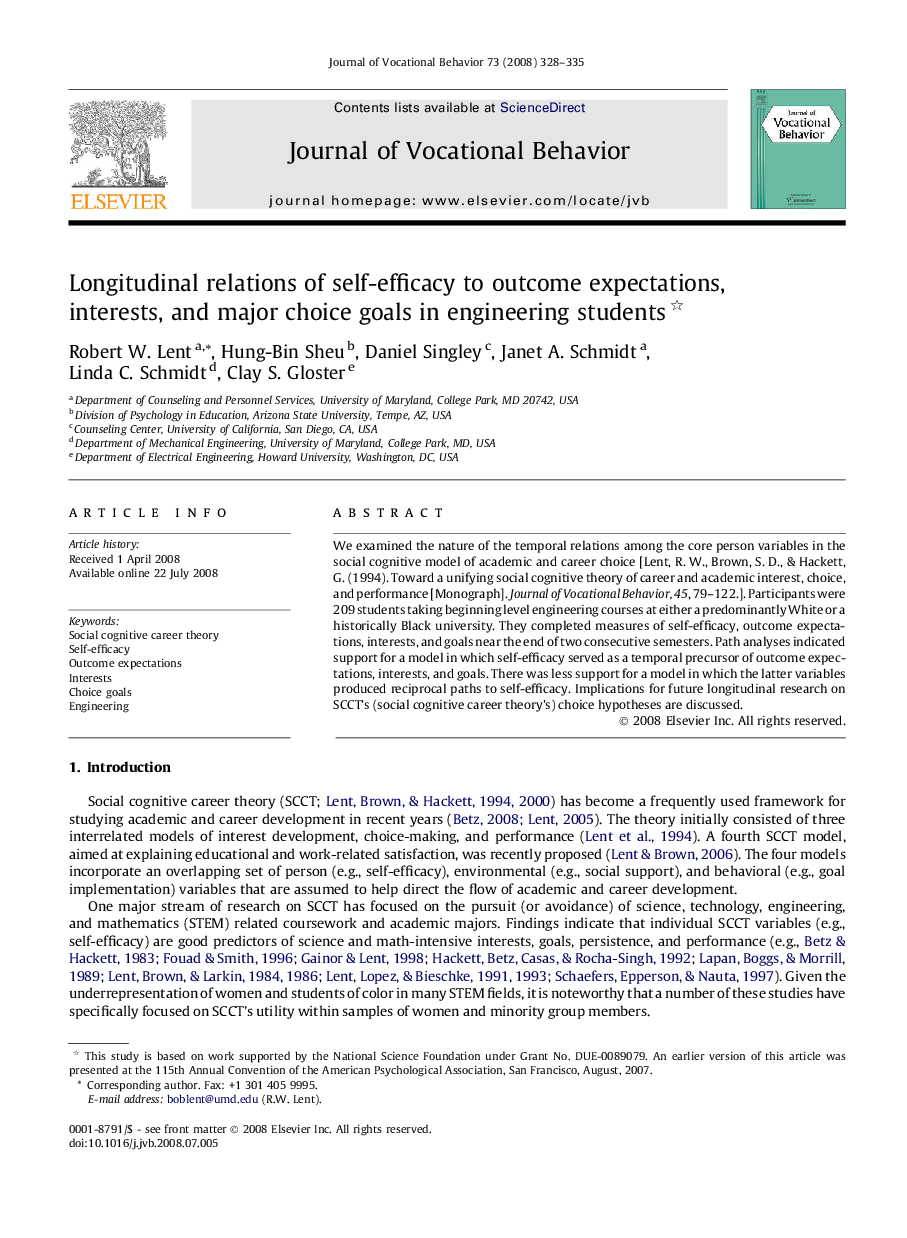| Article ID | Journal | Published Year | Pages | File Type |
|---|---|---|---|---|
| 887509 | Journal of Vocational Behavior | 2008 | 8 Pages |
We examined the nature of the temporal relations among the core person variables in the social cognitive model of academic and career choice [Lent, R. W., Brown, S. D., & Hackett, G. (1994). Toward a unifying social cognitive theory of career and academic interest, choice, and performance [Monograph]. Journal of Vocational Behavior, 45, 79–122.]. Participants were 209 students taking beginning level engineering courses at either a predominantly White or a historically Black university. They completed measures of self-efficacy, outcome expectations, interests, and goals near the end of two consecutive semesters. Path analyses indicated support for a model in which self-efficacy served as a temporal precursor of outcome expectations, interests, and goals. There was less support for a model in which the latter variables produced reciprocal paths to self-efficacy. Implications for future longitudinal research on SCCT’s (social cognitive career theory’s) choice hypotheses are discussed.
